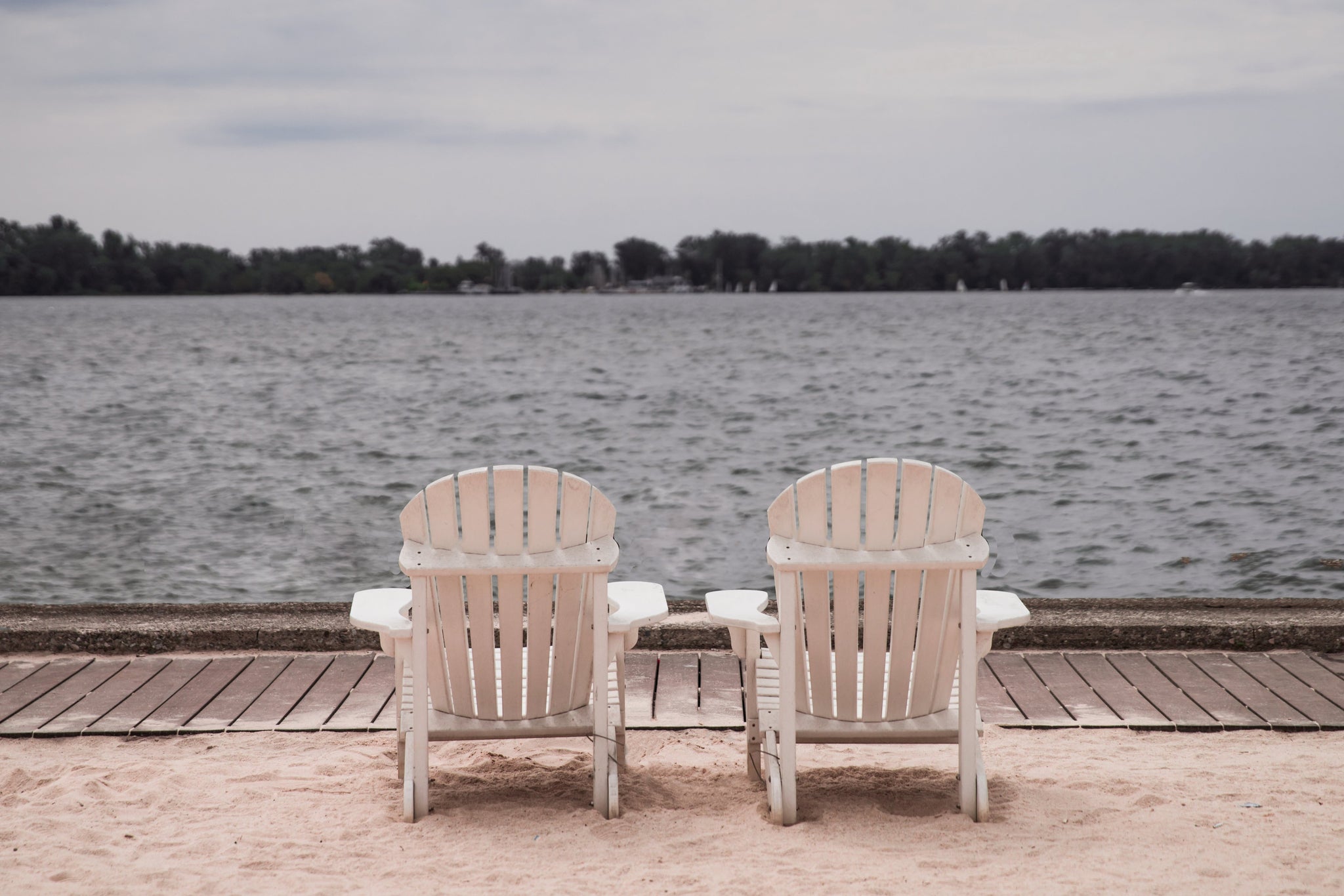Clear Lake Coffee Roasters: Political Economy Series: Tariffs, Tantrums, and the Pretender 'President' Who Couldn’t Tell a Latte from a Trade Agreement
Tariffs, Tantrums, and the Pretender 'President' Who Couldn’t Tell a Latte from a Trade Agreement
Some presidents wake up in the morning and read economic briefings. Others wake up, squint at their reflection, and decide to slap random tariffs on whatever pops into their head between hair spray and hash browns. Unfortunately for anyone who drinks coffee in the United States — that second kind of president is exactly the one we’ve got.
Let’s get this out of the way: the U.S. doesn’t grow meaningful amounts of coffee. Hawaii’s Kona and a few experimental farms in California aside, our beans are imported. Always have. Always will. Yet somehow, in a stunning display of ignorance, a certain felonious buffoon decided coffee imports needed tariffs — the economic equivalent of putting a toll booth on your own driveway.
Tariffs don’t punish foreign coffee farmers; they punish U.S. importers, roasters, cafés, and consumers. Every extra cent per pound imposed at the border filters straight down to your morning latte. Small roasters, operating on razor-thin margins, can’t simply absorb the hit. They either raise prices (risking customers) or cut costs elsewhere (often quality or jobs).
The “Punishment” That Punishes Us
The coffee trade is especially sensitive to global trade policies. When a president slaps tariffs — especially illegal or retaliatory ones — on coffee-producing nations, the result is a bitter brew for the entire supply chain.
These tariffs were allegedly meant to “teach foreign countries a lesson.” Great. Except the only students actually sitting in the classroom are U.S. importers, roasters, cafés, and your wallet. Farmers in Colombia, Ethiopia, or Sumatra aren’t paying those tariffs — we are. Small roasters see their margins vanish faster than campaign promises, cafés raise prices, and you pay $7 for what used to be a $4 pour-over.
Coffee is traded in U.S. dollars on the commodities market, but specialty lots are negotiated far above the commodity “C” price. Tariffs complicate contracts, delay shipments, and sometimes force importers to abandon carefully built relationships. In an industry where consistency matters — a single origin espresso can be a café’s calling card — this uncertainty is poison.
Coffee as a Bargaining Chip in a Game You Can’t Win
Tariffs can work when you actually make the product at home and can ramp up production. But coffee? No. We’re not going to replace Colombian Castillo or Ethiopian Yirgacheffe with some sad, overwatered shrub in California nor Arizona.
We import 99% of our coffee stock, whilst just 1% is domestically produced, with Hawaii and Puerto Rico producing the super majority of that commercial stock. In theory, coffee can grow in the same regions where Avocados grow, e.g. there are currently approximately 45,000 acres of commercially planted avocados in California, but, even if all of those acres were converted to coffee, tomorrow, the amount of coffee produced would represent just a 'drop in the bucket,' of our domestic consumption. Another problem is the costs associated with production in the United States, all of the inputs (labor, water, etc.) required to produce coffee in Brazil can yield a quality green coffee landed in the United States, at current prices, around $4/lb, that same bean would cost $100 or more per /lb if produced on a farm in California, for example.
And every time this president decides to play tough guy with trade, specialty importers are forced to abandon contracts and tell long-time farmers, “Sorry, we can’t afford your beans anymore.” Many coffee-producing countries in Latin America, Africa, and Asia rely heavily on exports to the U.S. Tariffs disrupt these trade flows, creating gluts in origin markets, driving farmgate prices down, and making sustainable farming even harder. The irony? U.S. tariffs can destabilize the very communities our “direct trade” and “fair trade” movements seek to support. We import more than 35% of our speciality grade coffee from Brazil
Trade Wars and Temper Tantrums
This isn’t leadership — it’s a toddler throwing blocks across the room, except the “blocks” are WTO agreements and decades of stable trade relationships. And when the rest of the world retaliates, the pain ricochets: other U.S. industries get hammered, and suddenly the economy looks like a jittery barista after 14 shots of espresso.
When a tariff violates World Trade Organization agreements or bypasses Congress’s trade-setting authority, it’s not just bad policy; it’s destabilizing lawlessness. The U.S. coffee sector thrives on predictable, rules-based trade. Flouting those rules invites retaliation — other nations slap tariffs on U.S. goods, sparking trade wars that spill far beyond coffee.
The End Result: Bitter, Weak, and Overpriced
Your cappuccino costs more. Your roaster’s offerings shrink. The café down the street lays off its best barista. And all because a man who confuses tariffs with trophies wanted to look “tough” on trade. Newsflash: there’s nothing tough about making your own citizens pay for your ignorance.
So here we are, stuck with overpriced coffee and a president who couldn’t trade a pack of gum without triggering a trade war. Drink up — because under this 'leadership,' it’s going to be a long, bitter brew.
Mock Press Conference: “Coffee Tariffs Explained”
Reporter: Mr. President, why did you impose tariffs on coffee when the U.S. doesn’t produce enough to meet domestic demand?
President: Look, everyone said it couldn’t be done. I said, “Watch me.” Nobody knows coffee like I do. I have the best coffee. People come up to me — very smart people — they say, “Sir, this is the best coffee deal we’ve ever seen.”
Reporter: But experts say the tariffs raise costs for American businesses and consumers.
President: Fake news. Prices are down. Have you seen gas? Have you seen stock markets? Coffee is going to be so cheap, you’ll be swimming in it. Plus, we’re bringing coffee jobs back from Brazil. A lot of people didn’t know Brazil was in Africa. It’s not — I told them, “You’re welcome.”
Reporter: Respectfully, Brazil is in South America, and coffee trees can’t grow in most of the U.S.
President: Wrong. I’ve seen them. Big, beautiful coffee trees in Texas. We’re going to grow them in Alaska, too. Tremendous sunlight up there in the summer. People said it can’t be done — we’ll prove them wrong.
Reporter: Sir, why are you banning the import of seedlings from Yemen and Ethiopia?
President: Because if we let them send seedlings, they’ll send too much coffee. The farmers here — great farmers, by the way, the best — they won’t be able to compete. We’re protecting our coffee. We’re making coffee great again.
Reporter: Final question: Have you ever actually roasted coffee yourself?
President: I’ve roasted a lot of people. Coffee is easy. You just add hot water, stir it, and — boom — Starbucks.
Press Secretary: Thank you, everyone. That concludes today’s briefing. Complimentary instant coffee is in the back.

Six reasons for making Clear Lake Coffee Roasters - CLCR - your go-to coffee roaster:
☕️ We are a local family-run business located in the heart of Clear Lake, Iowa.
☕️ We go to great lengths to find only the finest and ethically sourced coffee around, from the top 2% of coffee beans in the world.
☕️ We only source 100% certified Arabica coffee beans, carefully hand-selecting each coffee based on specific quality and taste attributes.
☕️ Our roasting process has been refined over the years and each roast profile is individually designed to complement the nuances of the coffee we source, from Cup of Excellence (COE) award-winning producers.
☕️ By roasting in smaller batches, we can ensure our coffee is ALWAYS fresh, in fact, we roast your coffee only after you place an order - the same day your order ships out.
☕️ At CLCR, we are dedicated to a single mission: the unyielding pursuit of coffee perfection in every cup.
We would give you more reasons, but rather than reading it's better if you visit our website, purchase a bag or two, and experience a unique caffeinated or half-caff journey for yourself 😊!
Explore goodness. Click. Buy. Smile.

Clear Lake City Park Beach - Named one of USA Today's top 50 Beaches in the United States.



Leave a comment
Please note, comments must be approved before they are published